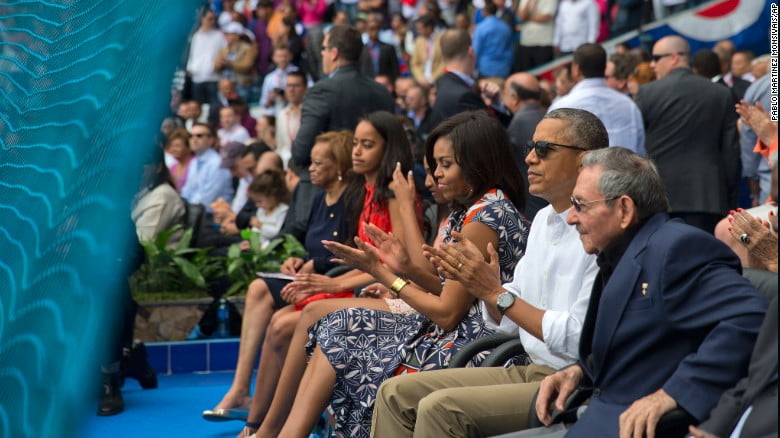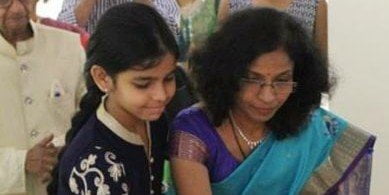

President Barack Obama called for the U.S. embargo against Cuba to be lifted and for Cubans themselves to embrace change in a historic address from Havana.
“It’s time to lift the embargo,” Obama told Cuban officials and dignitaries gathered at the Grad Teatro de la Havana Alicia Alonso, including President Raul Castro. “But even if we lifted the embargo tomorrow, Cubans would not realize their potential without continued change here in Cuba.”
Obama’s landmark visit to Cuba follows the December 17, 2014, agreement to begin normalizing relations between the U.S. and Cuba after a more than a half century of estrangement. He is the first sitting president to visit Cuba since 1959.
In remarks Tuesday, the President used his visit — unimaginable just a few years ago — his presidency and even the ongoing U.S. presidential campaign as examples of the benefits and opportunities available to Cuba as it embraces change.
Even as terror attacks rattled Brussels and much of the West, Obama only briefly digressed from his prepared remarks to address the violence. The rest of his approximately 40-minute speech was devoted to pushing forward a new era with Cuba.
“I have come here to bury the last remnant of the Cold War in the Americas,” he said to applause. “I have come here to extend the hand of friendship to the Cuban people.”
But Obama noted that there were still “very real differences” between the two countries, stretching from their political systems to their economic models, and made an extended appeal for greater freedoms on the Communist island.
“I can’t force you to agree,” he said, before outlining his belief that “every person should be equal under the law” and that “citizens should be free to speak their mind without fear” — a line that drew applause.
He also said that people should be able “to organize and to criticize their government and to protest peacefully,” and that they should not be arrested for doing so.
“Not everyone agrees with me on this,” Obama said, “but I believe those human rights are universal. I believe they are the rights of the American people, the Cuban people and people around the world.”
Obama told the crowd that democracy allows for the fullest expression of the ideals of any revolution — American, Cuban or otherwise, not because democracy is perfect, but because “It gives individuals the capacity to be catalysts.”
Pointing to Democratic presidential candidates, Obama noted the diverse array of candidates.
“You had two Cuban-Americans in the Republican Party running against the legacy of a black man who was president while arguing that they’re the best person to beat the Democratic nominee who will either be a woman or a democratic socialist,” he said.
“Who would have believed that in 1959,” Obama added, to the crowd’s laughter. “That’s a measure of our progress as a country.”
Obama also pointed to some specific changes the U.S. would like to see, including less red tape for Cubans who want to open businesses or work for foreign companies investing in Cuba, and greater Internet access.
Even as Obama urged change, he pledged to Cubans that they had no reason to fear U.S. attempts to strong-arm them.
“I’ve made it clear that the United States has neither the capacity or the intention to impose change on Cuba,” Obama said. “What changes come will depend on the Cuban people.”
After his speech, the President met with a dozen Cuban dissidents and spoke of their “extreme courage” in a conversation that touched on their concerns about issues such as religious freedoms and freedom of the press. All the dissidents had been detained, some more recently than others.
White House officials wouldn’t comment on participants of the meeting but did react to reports that Cuban authorities were arresting dissidents in Havana in advance of it.
“We reiterate our call for the Cuban government to end the practice of arbitrary detentions,” National Security spokesman Ned Price said.
Obama returned to his call for greater Internet access in his address when he told his audience that sustainable economic growth and prosperity doesn’t just require strong education systems, health care and environmental protections.
“It also depends on the free and open exchange of ideas,” Obama said. “If you can’t access information online, if you cannot be exposed to different points of view, you will not reach your full potential, and over time, the youth will lose hope.”
He acknowledged that the issues were sensitive coming from a U.S. president.
“Since 1959, we’ve been shadow boxers in this battle of geopolitical politics and personalities,” Obama said. “I know the history, but I refuse to be trapped by it.”
[Source:- CNN]





